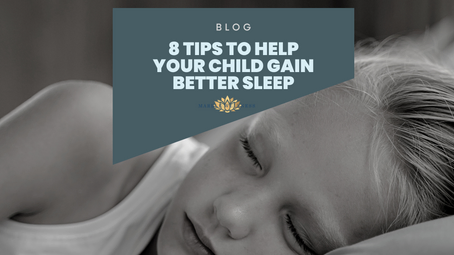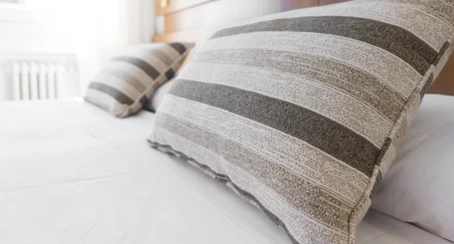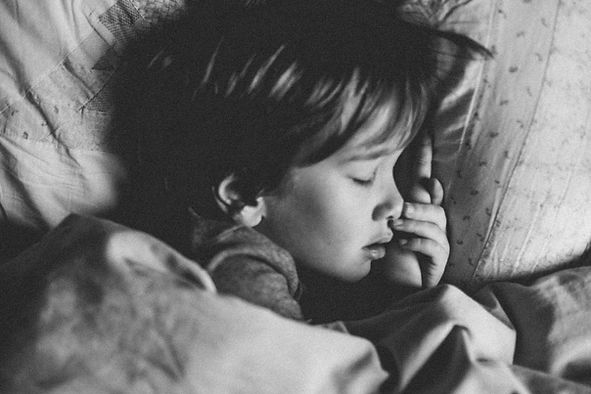
How is your Child’s Sleep?
When it comes to our sleep, the bedtime routine can either come as a natural process or one that leaves us feeling stressed because it seems impossible to fall or stay asleep. This pressure to sleep can tamper with our performance the following day.
Does your child have a hard time falling asleep or staying asleep? Do they need your presence a majority of the night? Or, does your child wake up irritable or even show little to no motivation to start the day?
Approximately 25% of children develop insomnia.
Children of all ages struggle with lack of sleep at least once in their childhood. However, with the right tips and tricks your child and you as the parent, can start getting the sleep you deserve!
How Sleep Impacts a Child’s Functioning
Getting good quality sleep is something we all strive for. If we are not getting consistent sleep, this can affect concentration, memory, and behavior. If your child is not getting sleep throughout the school year this can have an impact on the way they learn and interact with their environment.
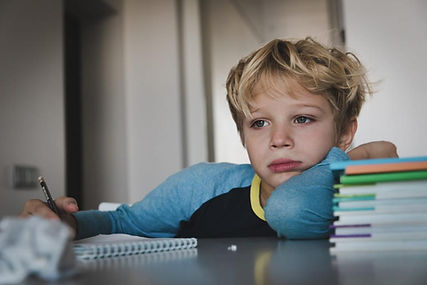
What exactly is Sleep Hygiene?
As we adapt and grow in our childhood, it is so beneficial to tackle sleep hygiene at an early age. Sleep hygiene is the habits or routines that aid in our sleep.
Maybe your child’s sleeping patterns are not where you would like them to be. Are inconsistent routines, racing thoughts, or worries of being alone causing a barrier for your young one?
Bedtime obstacles vary among all children, and it is quite normal for your child to have stress when it comes to their sleep regime. However, as a parent you want to help them maintain healthy sleep habits to make sure they are living their daily lives to the fullest.
Here is a link for the recommended hours of sleep an individual should be getting based on their age according to the CDC.
https://www.cdc.gov/sleep/about_sleep/how_much_sleep.html
Here are tips from a St. Louis Child Therapist on how to improve your child’s sleep routine:
Routines
- Routines help us find consistency and control! So lets make a routine for your little one to help them find control when they are feeling anxious about bedtime. You may include a written schedule to hang by their bathroom or bedroom mirror. This may list manageable tasks they can complete.
Try to keep the list short so you don’t overwhelm them–especially at the beginning!–and also ask them what they think is appropriate and helpful to include. Giving them choices is another way they can find control.
Nighttime Self Care
- This one can be included in the routine. When I first meet with clients, I like to ask them what their coping skills are and then try to incorporate them into their sleep schedule.
Nighttime coping skills should be minimal and relaxing (maximum of 10 minutes). Some ideas include meditating, deep breathing, reading, journaling, gratitude check-in, repeating positive affirmations, etc.
You may include a bonding activity such as a bedtime story, word of the day, or ask them what the best part of their day was. If they are still not finding better sleep, suggest an almost “boring” activity to make them more sleepy.
Limit Stimulations
- With technology and media becoming more and more popular, this one can be challenging and you definitely want to consider “picking your battles” here. However, it’s a pretty worthwhile battleground when it comes to the physical, mental, and emotional health of your little one!

Light exposure can keep our brains awake even as our eyes are shut. The best thing to do is to avoid electronics (phone, laptop, tv, etc) and limit energizing noises 30-60 minutes before bed. If your child needs noise or light to feel comforted, night lights, sound machines, calming music or meditation music can provide a calming environment for your child.
Have a cool room
- The colder the better. Your body naturally drops in temperature as you sleep so keeping the air cold helps speed this process and also helps you fall asleep faster. Sweating is also known to interrupt your sleep cycle. Keeping the room cold can boost melatonin reproduction which can help keep you or your child asleep through the sleep stages.
Limit sugar and caffeine before bed
- Sugar and caffeine can shift the focus away from sleep and cause our brains to develop anxiety or fears before bed. Keeping the environment stress free is the goal! If your child is wanting a snack before bed, it is recommended to have them fed at least 2-3 hours before their bedtime, and offer them something light such as a banana, berries, yogurt, dry cereal, or cheese sticks. Avoiding food a few hours before their bedtime can limit stomach heaviness during their sleep cycle.
Focus on mindful breathing
- Another form of self care is deep breathing. Three convenient deep breathing techniques I like to encourage kids to use are belly breathing which includes putting one hand on their belly and one on their heart. Inflating their imagined balloon as they breathe in and deflating the balloon as they breathe out. I also like to have children create an imaginary star. Each line drawn, alternating their breathing. And the last one, breathing in for 4 seconds, holding for 7 seconds, and breathing out for 8 seconds.

Here is a link for some additional techniques https://www.moshikids.com/articles/deep-breathing-exercises-for-kids/
Healthy habits throughout the day:
- Some habits to include for your child during the day may include consistent physical activity. It is good to avoid physical activity before bed. Cosmic yoga for kids on youtube is a great physical exercise resource. It is also great for children to have a well-balanced diet. As said earlier, try to avoid heavy meals right before bed.
Have a warm bath or shower
- A warm relaxing bath 1-2 hours before bed can improve blood flow, raises body temperature, and helps to make your child feel relaxed and tired.
Whether you are a child who has too much energy before bed or an adult dealing with racing thoughts at night, our mental health team at Marble Wellness can help improve your quality of sleep and help find ways to manage anxious thinking. We want to help you and your child find success and confidence.
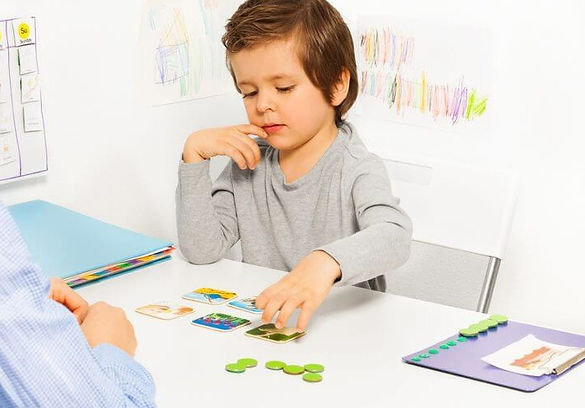
What is Play Therapy?
* Here is a blog on some FAQ on Play Therapy that you may find helpful *
Start Play Therapy for your child in St. Louis, MO
If you live in St. Louis and are ready to improve your child’s mental health, we are here to help.
Whether it’s anxiety, depression, grief or fears that is robbing your child of thriving, our Marble Wellness mental health therapists can provide in-person sessions to help your child improve. You can reach out to us on our website, request an appointment online, or give us a call today to get started.
Contact Us!

Additional Counseling Services at Marble Wellness in St. Louis, MO and Chicago, IL
Counseling services designed to help set you on a path of living a more fulfilled, calm, and happy life.
St. Louis
Our St. Louis team of therapists have a variety of training backgrounds and areas of expertise. We specialize in anxiety, depression, grief, chronic illness, therapy for men, couples, and maternal overwhelm. We can also help new moms with various postpartum concerns, moms in the thick of parenting, and moms with teens. We can also chat from wherever you are in the state with online therapy in Missouri and online therapy in Illinois. No matter where you are in your journey, we would love to support you.
Chicago
Our Chicago team of therapists offer a wide range of mental health services to help our clients through the different challenges and hurdles in their life. In addition to anxiety, depression, grief, therapy for men, and maternal overwhelm, we are specialized in professional burnout, therapy for breakups, and love partnering with working moms.
